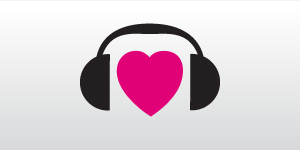Policing The Trolls: The Ins and Outs of Comment Moderation
Internet comment sections seem by nature to breed both insightful musings and the foulest bile. Many readers and comment writers complain to us about their frustrations in trying to understand what rules, if any, lie behind how the comments are moderated. NPR, like many news organizations, constantly walks a tight-rope in trying to encourage both lively discussion and respect.
Scott Montgomery, NPR's managing editor of digital news, says there's no optimal comment moderation system out there:
When it comes to online user comments, our goal at NPR is to cultivate a forum for open and useful conversation about news and the issues raised in the news. I don't think anyone would dispute the validity of the goal, but we know sometimes people don't agree with how we define a useful conversation or the methods we use to cultivate it. There's an inevitable tension between those who want to be able to say most anything in our comment section, and those who want a level of civility and focus that encourages commenters from a wider range of readers. So, we try to tame the shouting and we sometimes try to keep the discussion focused on the topic at hand. We use a mix of off-site moderation approaches, and also the engagement of reporters and editors in our building.
In July and August, NPR.org fielded nearly 200,000 comments per month. Clearly, the moderators have a lot on their plate. While we can't address every individual issue that readers have raised, we hope that that the following might help clear up some confusion.
How are comments moderated?
All comments go through at least three filters. The basic front line is a software program called Disqus that helps prevent spam and eliminates posts with banned terms. Another external robot filter goes over them with a finer-tooth comb. Finally, a human moderator from an outside company reviews the comment. Should you alter a previously-published comment, it must pass through these filters again.
The majority of NPR comment sections are not moderated by NPR staff. The exception to this is Code Switch. This blog is heavily curated in-house in order to keep discussion civil on the often sensitive subject of race. For guidelines on how the blog is moderated, check out this post by Gene Demby on "The Four Types of Comments We Usually Remove On Code Switch."
Why are my comments being deleted?
Well, it's hard to say. Comments are most often deleted for offensive language or blocked as spam. Moderators may choose to delete a comment if it is off topic or inflammatory. And sometimes things just slip through the cracks. We haven't found a perfect way to do this, so bear with us as we continue to improve the system.
If you think one of your comments was removed in error, please reach out to NPR's Audience and Community Relations team through the website's contact form. To make sure your message gets to the right person as quickly as possible, be sure to select:
- "Request Technical Assistance" under the "I Want To" field
- "My Online Profile" under the "I Need Help With" field
- "Posting a comment" under the "I Am Having A problem" field
Why isn't [insert troll's name here] being blocked?
To quote the Community Discussion rules: "Do not 'feed' the trolls. We encourage community members to report abuse by trolls. But we also ask that you not engage with trolls in the comment threads. Reacting to their provocations is exactly what they want. If we see you feeding a troll, we will remove both the troll's comments and your responses."
To report trolls and inappropriate content, hover your mouse over the objectionable content until a down arrow appears in the upper right hand corner of the area next to the comment. Open that menu, and you'll see the "flag as inappropriate" option. Every post that is flagged is viewed by a moderator.
Why are the comments closed?
The automated procedure for the content management system is to leave comments open for a week. This is to keep out spam on old posts. Occasionally, comments sections will be forced open longer – like we've started with our Open Forums, which will stay open until the next thread is created. The moderators also reserve the right to shut down conversation that has become uncivil.
Does anyone read the comments?
Yes and no. Reporters and editors read the comments at their own discretion. Some reporters love the feedback, and often use questions raised in comment sections as inspiration for later follow-up pieces. Some comment sections are so vitriolic that reporters steer clear.
The Ombudsman staff reads through the Open Forum regularly for insightful comments. They often spark discussion in the office, circulate through the newsroom as constructive criticism and sometimes result in a blog post by the ombudsman.
What if I have other questions?
They may be answered in the Community Discussion Rules or the NPR Community FAQ. If not, feel free to post in the Open Forum or shoot us an email via the Contact Us form. Or, if you're feeling particularly meta, leave a comment below.
Comments
You must be signed in to leave a comment. Sign In / Register
Please keep your community civil. All comments must follow the NPR.org Community rules and terms of use, and will be moderated prior to posting. NPR reserves the right to use the comments we receive, in whole or in part, and to use the commenter's name and location, in any medium. See also the Terms of Use, Privacy Policy and Community FAQ.









